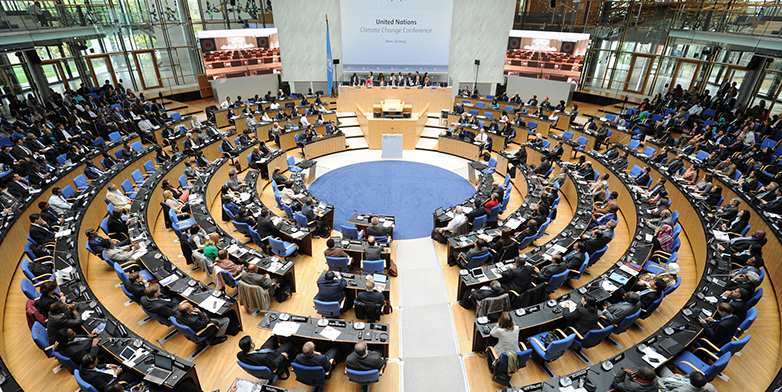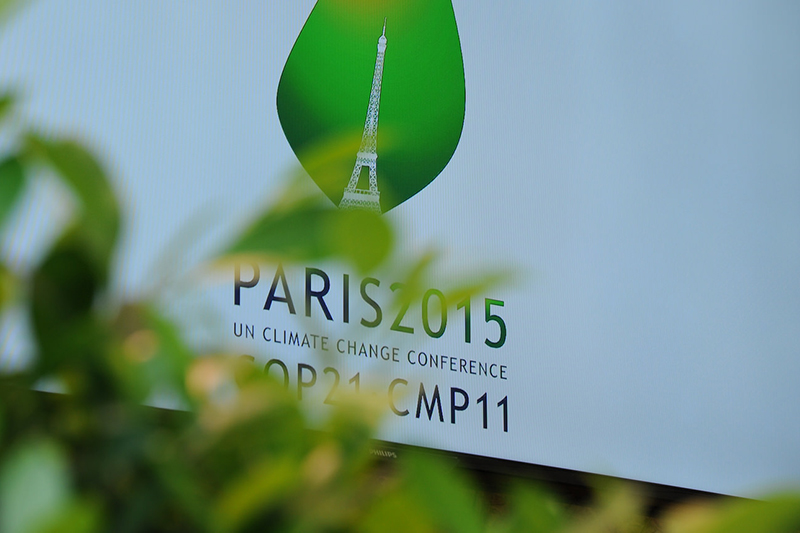Will the Paris agreement matter for climate change?
After a long series of failed negotiations on binding emission reductions, the world is looking to the 21. Conference of Parties (COP21) in Paris this December. Expectations are rising, and many believe that the fate of the planet depends on the outcome of these negotiations. But does solving climate change really hinge on the agreement in Paris?
The Kyoto Protocol, signed in 1997, was the first major agreement to limit greenhouse gas emissions with binding national targets. It covered emissions over the period 2008 – 2012, requiring industrialized countries to reduce theirs by an average of 5% compared to 1990. Ever since Kyoto became legally binding in 2005, negotiators have been seeking the next round of binding targets, ones that would put the world on track to stabilize the rise in temperature at no more than 2°C.
Hopes were put on negotiations taking place in 2007 in Bali, but countries failed to reach agreement. Then people looked to 2009 in Copenhagen, again without result. In 2012 in Doha, countries agreed to prolong the Kyoto Protocol with national commitments until 2020, although the commitments themselves were simply what countries offered unilaterally, and were clearly insufficient in light of the 2°C target. Now hopes have turned to an agreement for meaningful binding emissions cuts being agreed to in Paris this December.
Expectations for Paris
For months the hype has been building, with two big questions on people’s minds. First, will negotiators agree on a new set of binding targets? It looks like they will, because enough countries have put serious offers on the table, including China and the United States. Second, will those targets be ambitious enough? Here the answer appears to be “no”. If you extrapolate the promised rates of emissions reductions out to the end of the century, this would not be enough to achieve the 2°C target. Bear in mind that to achieve the 2°C target, humanity needs to completely stop burning fossil fuels well before 2100.
Many believe that the fate of the world hinges on whether this “no” can be turned into a “yes”. Others, including myself, agree on the importance of solving climate change, but see Paris as a less important milestone. It is an interesting and important debate.
Climate change – a tragedy of the commons?
The argument for the importance of the Paris negotiations rests on the idea that climate change is a tragedy of the commons, a concept from game theory. In a tragedy of the commons, all actors have an incentive to cut back on their own contribution to the common pollution problem, but only if all other actors do the same. Many actors would like to be free riders, benefiting from the pollution reduction of others, but maintaining their own polluting behavior. To solve a tragedy of the global commons, it is essential to have a global agreement with enforceable emissions targets. Only with such an agreement in place will any country have an incentive to reduce its own emissions.
But that argument depends on a basic assumption that actually turns out to be wrong: that making incremental reductions in greenhouse gas emissions is costly. This used to be the case, but no longer is. Renewables-based systems can now supply reliable energy at costs that compete with fossil fuels, and which do even better when regulators take into account local benefits like reduced air pollution and water consumption. The same can be seen with industrial and agricultural practices that reduce waste, and emissions. Their competitive advantage will only increase with time.
So today, most governments have an economic and social incentive to eliminate their domestic emissions, and do not need a global agreement to force their hand. But achieving this quickly is extremely complicated. Fossil energy may no longer be cheaper than renewable energy, but is still easier to transport, to store, and to pump into fuel tanks, especially when most of the needed technology and infrastructure are already in place. What new technologies to invest in and what infrastructure to build, where to build it, when and how to retire the old equipment, and most of all what policies to enact in order to mobilize the private sector to do these things: all of these issues remain politically contested. The agreement in Paris will not change this.
Overcoming the barriers to change
Global greenhouse gas emissions are not falling nearly fast enough, and it is easy to be pessimistic about the fate of humanity. But the last ten years have also seen remarkable technological and institutional innovation, laying the groundwork for rapid emissions reductions in the decades to come. It is clear that the costs of wind and solar energy have dropped dramatically. Equally important are innovative approaches to project finance, which are making it easier to raise the necessary capital. Or the fact that power companies are now working more closely with local-level stakeholders, in order to avoid protracted legal battles on renewable infrastructure siting. Switzerland can have a large role to play in solving climate change, not because our greenhouse gas emissions are particularly high, but rather because our innovative capacity very much is.
To solve climate change, the world needs to capitalize on the groundwork that now exists. The push towards Paris has accomplished one important thing already: it has placed climate change higher on many countries’ political agendas. India, for example, was under pressure to put forth a climate plan this year, and has recently done so. Beginning to confront the political challenges is an important step.
Moving forward, it is essential that countries not simply meet their Paris emissions reduction commitments, but surpass them. This is fully possible, if the pace of innovation in countries like Switzerland continues. For these innovations to spread globally will also require a greater level of technical and financial support for low carbon development; something that is also up for negotiation. The most important commitments coming out of Paris will not be the numbers describing tons of CO2 eliminated, but the ones with dollar signs attached to them.
Are you interested in what will be going on at the Climate Change Conference, in the negotiating position and strategy of the various member countries, or in the role that Switzerland can and should play? Then join us in discussion at the Klimarunde.


